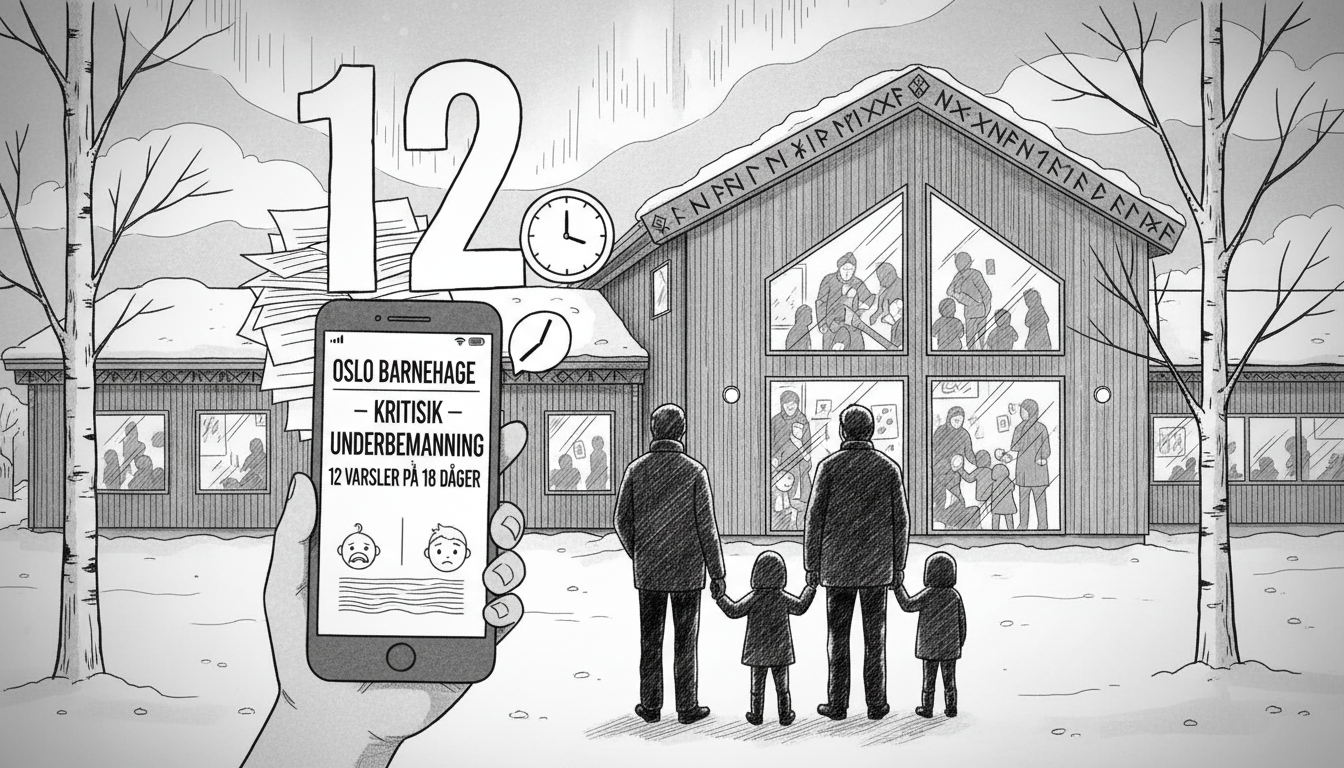An Oslo kindergarten has triggered alarm among parents after sending twelve staffing shortage notifications within just eighteen operational days. The Sandåsveien kindergarten in Grorud district notified families repeatedly about understaffing situations between late September and October, revealing systemic challenges in Norway's early childhood education system.
Parents Ole Robin Mikael Erlandsen and Helene Sandvik Erlandsen, whose children Eline (3) and Elias (5) attend the facility, described receiving constant messages about insufficient staff. The couple received twelve formal notifications from their children's two departments plus two additional alerts through the kindergarten's application about understaffing days.
I agree that parents should be flexible, but there's a limit, said Ole Mikael. That limit is reached when we get these messages so frequently from just our two departments. His wife Helene added, And this is before the full sickness season has even begun.
The staffing shortages have transformed the kindergarten experience fundamentally. Throughout October, it's been exceptional when things went according to plan, Helene explained. The kindergarten has become more of a child storage facility than an educational environment.
Children are often delivered outside in the morning, sections of the outdoor area are closed off to concentrate children in smaller spaces requiring fewer supervising adults, and children spend most days outdoors. They might eat lunch in the hallway, she described.
Elias has only attended his preschool group once this autumn despite weekly sessions being planned. The mixing of departments and age groups, intended as exceptional measures, has become routine.
Kindergarten director Elizabeth Hernholm acknowledged unusually high October sickness absence created staffing challenges. She emphasized the kindergarten's small size and good routines for close cooperation with parents. The facility has encouraged parental cooperation and asked if some could pick children up early never as a requirement, but as a voluntary solution, she stated.
Parents question when requests become requirements. When we get messages that there are no adults available after 4:30 PM and children must be collected before then isn't that more requirement than voluntary solution?
Hernholm responded that this only happens in extraordinary circumstances, not as standard practice. Parents always get the opportunity to adapt if they wish to contribute, but it's not a requirement. The kindergarten has responsibility to find a solution regardless.
The staffing crisis reflects broader national trends. Norway's kindergarten sector experiences high employee absence rates, and competition for substitutes is fierce. Employees do their very best every day to give children good offerings, Hernholm wrote.
The Erlandsen family plans to take unpaid leave next year rather than start their one-year-old daughter in kindergarten under current conditions. The need for people isn't any less in our professions as intensive care nurse and doctor, but we'll take unpaid leave partly because we think it's too early for our one-year-old daughter to start kindergarten as things are now, Ole Mikael said.
This situation highlights how staffing challenges ultimately transfer burden to families. We're privileged as a family to have this option, he acknowledged. But many in our district don't.
Helene worries that constant adaptation masks systemic problems. We camouflage the problem. If everyone manages to pick up by 4 PM so the kindergarten manages without staff the final hour, they can say it went fine. Meanwhile, we must stretch for the employees, who face demanding daily work.
The kindergarten staffing crisis represents more than temporary sickness absence it reveals structural challenges in early childhood education that affect children's development, employee working conditions, and family work-life balance across Norway.
Norwegian kindergartens operate within strict staff-to-child ratios, making substitute coverage essential during absences. The current situation demonstrates how thin staffing margins create domino effects throughout the system, forcing educational institutions into crisis management rather than quality education delivery.

